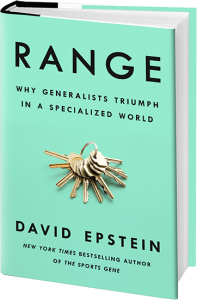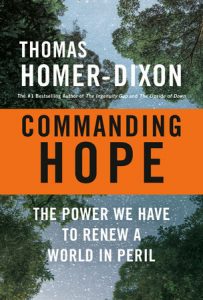“No individual may have it within his or her power to overcome or expunge the malaises or misfortunes of society. But everyone has something important to contribute to the whole, and the radiating effects of that contribution are sometimes beyond calculation.” – Norman Cousins
Whether it is regret over past choices or a sense that we are falling behind others, our fear around an uncertain future can get us stuck in our career journey.
Young people are particularly vulnerable to social pressures, believing that their peers are leaving them in the dust and that they are running out of time. This can generate feelings of regret and guilt at having missed the opportunity to make the “right” choice and lead to a fatalistic view that connects their current uncertainty with a belief that they will not be able to have a satisfying career. This fatalism can be compounded by political, medical and environmental stressors that can create a sense that the world is falling apart.
Helping move clients out of these unhelpful beliefs can be challenging, as clients lacking hope for their career future can understandably question the value of taking action.
Two books I draw from regularly to serve as lanterns in the darkness are Range (and the associated TED Talk) by David Epstein and Commanding Hope by Thomas Homer-Dixon.

Epstein argues that we mistakenly extrapolate the importance of head starts in select fields such as sports and chess to all careers. He also notes that professionals including those in specialized fields such as sports may go through an extended “sampling” period of trying out different instruments and sports before settling into their chosen field. Epstein concludes that the benefits of “match quality” – the connection between the occupation and a person’s skills and interests – outweigh the benefit of a head start on a career pathway.
Highlighting 2010 and 2011 studies of Scottish and English post-secondary students, Epstein notes that students chose to sample and switch programs and test for match fit, even when it meant developing less specialized skills as those in institutions requiring early specialization. He also noted that while early specializers reported higher initial wages, those who specialized later found that their earnings gap closed within a few years.
Epstein suggests that the value of education is about identifying match fit as much or more as it is about skills development. This is a powerful message of hope for clients contemplating changing their focus. This pushes back against the notion that students who change tracks chose the “wrong” program in their first year, by normalizing the process of switching, and celebrates the self-knowledge that our clients develop to inform the change in study. Of course, this does not mean that we should avoid specializing at all, that clients should not expect to develop expertise, or that personal contexts and labour markets do not differ, but that there is professional value in taking time to sample.
Our knowledge and experience do not disappear when we switch fields and may bring a valuable new perspective to our next field of work. Though our culture may venerate those that specialized early, there are many accomplished professionals – from artist Vincent Van Gogh to athlete Roger Federer – who combined broad interests and a sampling period to find professional success.

Homer-Dixon highlights the necessity of uncertainty in hope. We do not hope for something that we know will or will not occur. For example, I do not hope that the sun will rise tomorrow just as I do not hope that I will develop the ability to fly tomorrow. I do hope that poverty, inequality and pollution will decrease, and this prompts me to look for ways to create that future.
Drawing on the field of positive psychology, Homer-Dixon proposes that hope be presented both realistically (as a clear future bounded by facts) and with a sense of individual agency in the client. To the latter end, he contrasts feeling “hope-to” with “hope-that” for a desirable future. “Hope-that” implies that the change will occur regardless of the client’s action, such as a hope that technology will resolve our present climate change concerns. By contrast, a “hope-to” reduce climate change through specific actions empowers clients.
When working with clients avoidant of uncertain outcomes, we can validate the losses they have experienced that typically fuel these fears while highlighting that hope grows from the soil of uncertainty; reframing fatalistic narratives by asking what the clients hope to achieve in the future. From here, we can connect to the problems of the future or move to develop a flexible vision of hope in the face of uncertainty.
The past year was one of loss and uncertainty, but hope grows from understanding that pre-determined paths are neither common nor ideal for all clients seeking personal career fulfillment in the world we now live in.







